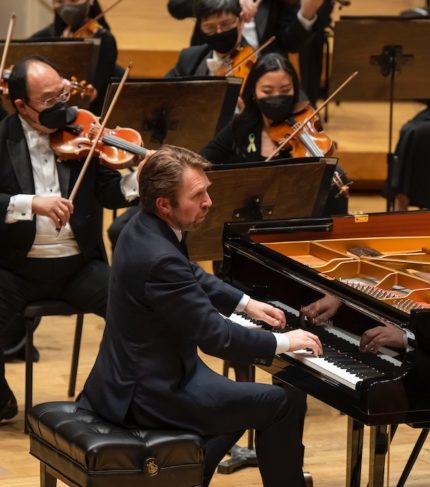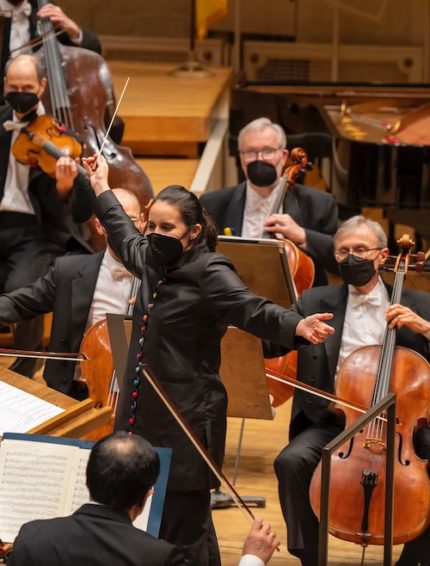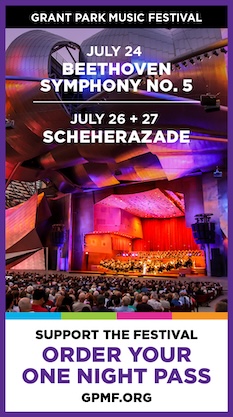Andsnes smoothly takes the CSO reins in a retooled Mozart program

A positive Covid test from music director Riccardo Muti on Monday threw this week’s CSO programming into disarray, with Tuesday’s performance cancelled entirely and the remaining concerts substantially retooled. The octogenarian maestro is reportedly in good spirits and experiencing mild symptoms.
Fortunately, the scheduled soloist was the formidable Norwegian pianist Leif Ove Andsnes, who was able to slide seamlessly into the leadership role. The pianist made his CSO conducting debut leading two Mozart piano concertos from the keyboard, in lieu of the planned evening of Strauss, Britten, and Schumann. And, in a rare duo debut, Solti conducting apprentice Lina González-Granados made her CSO bow in two brief overtures, becoming the first Latin-American woman to lead the ensemble.
Andsnes is currently an artistic partner of the Mahler Chamber Orchestra, heard in Chicago last month with pianist Mitsuko Uchida, another consummate artist in long-term collaboration with the ensemble. That group is currently engaged in a multi-season “Mozart Momentum” project, exploring the composer’s prodigious output from 1785-86, which included the Piano Concertos Nos. 20 and 23, heard Thursday night.
Andsnes led the hushed opening of Concerto No. 20 in D Minor with atmospheric urgency, though he was most effective when leading by example from the keyboard. He played throughout with sensitive authority and a wide spectrum of timbres that brought drama to the opening Allegro, particularly in Beethoven’s cadenza. He opened the Romanza with forthright expression, making the stormy episode in G minor (“the noisy part with the fast triplets,” per Mozart’s father) a hair-raising contrast. Andsnes dispatched the closing Rondo with effortless flair, though always with a sense of direction and attentiveness to his orchestral colleagues.
The Concerto No. 23 in A Major was on the same accomplished level. Andsnes made something of a prelude out of the Rondo for Piano in D Major, proceeding without pause from this formally innovative solo work into the concerto’s genial Allegro.
In K. 485, Andsnes’ voicing was pristine, and his phrasing had both balance and spirit. The Adagio had the requisite wistful pathos, though lacked the intimate, conversational quality that made such an impression with Uchida and her colleagues last month. Andsnes was faultless in the Allegro assai, playing with nimble dexterity and bringing the evening to an elevated close. If only all Covid-related disruptions ended with such happy results.

Each half of the program began with an overture led by González-Granados. Despite a tremulous baton betraying some understandable nerves, she brought eloquence to the spacious opening of Rossini’s Overture to The Barber of Seville, and led the famous faster portions with precision. Many refined solo wind contributions and Charles Vernon’s raucous bass trombone in the closing bars were highlights.
The Columbian-American conductor elicited adequate drama in the opening of the Overture to Don Giovanni to begin the second half, and lent effervescence to the middle section.
The program will be repeated 1:30 p.m. Friday, 8 p.m. Saturday, and 7:30 p.m. Tuesday. cso.org
Posted in Performances
